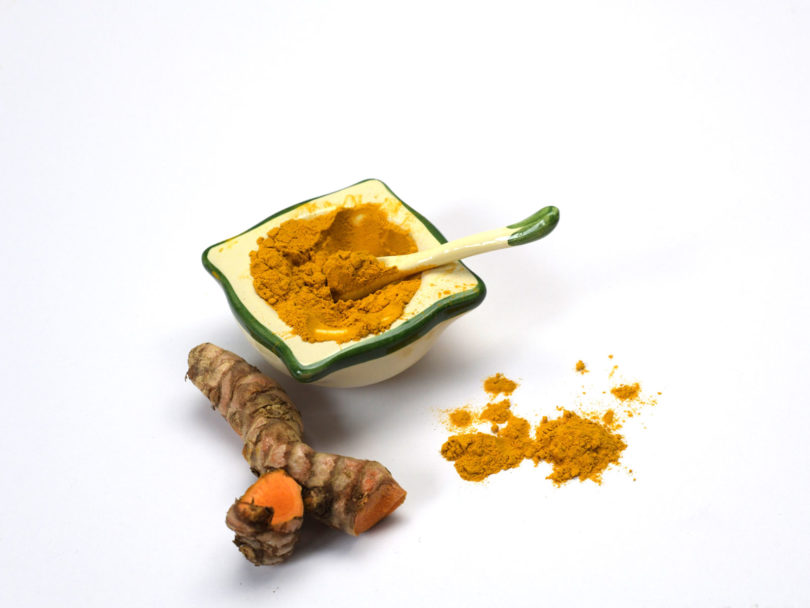Turmeric is found to improve inflammation-related skin-care concerns, like psoriasis, acne and sun damage, and reduce the negative effects of high-fat meals, lowering the body’s insulin response by about 20 percent.
What do French fries, a glass of milk and chronic stress have in common? They’re all known to be causes of inflammation. Since inflammation seems to be the root of many degenerative illnesses, that could mean giving up some of your favorite foods.
But there’s an exciting antidote emerging that has scientists scratching their heads in awe over its potential, and you won’t have to search far for it. In fact, you can find it in your local health food store.
This magic elixir is turmeric.
Native to Southeast Asia, a staple of Asian and Indian cuisine and a cousin to ginger, the excitement isn’t necessarily about turmeric itself but rather a component within it called curcumin — a phytochemical that scientists have found to have powerful antioxidant and anti-inflammatory properties with promising healing potential.
So, what specifically can it do besides give your curries that signature shade of yellow?
Wellness experts highlight a study that examined more than 700 research papers on turmeric, concluding that curcumin has substantial disease-prevention potential and other benefits, including guarding against cancer, arthritis and Alzheimer’s disease. The literature also revealed that turmeric outperformed many pharmaceuticals used to treat inflammation and had almost no side effects. In addition, turmeric was found to improve inflammation-related skin-care concerns, like psoriasis, acne and sun damage, and reduce the negative effects of high-fat meals, lowering the body’s insulin response by about 20 percent.
Some researchers do extend a note of caution, however. While there have been very promising studies about the benefits of turmeric, some controversy and uncertainty remains, particularly how to best dose it. Curcumin is rather fragile, and once it’s ingested, it’s quickly excreted.
Some serious side effects have been reported with use, including gastrointestinal issues from taking high doses for an extended period of time. Those with gallbladder issues, bleeding disorders and iron deficiency should not take turmeric, nor should women who are pregnant or breastfeeding. Further, men should be cautious taking turmeric by mouth, as it might lower testosterone levels and reduce sperm movement.
Still, Ajay Goel, a cancer researcher and director of Baylor University’s Center for Gastrointestinal Research in Dallas, Texas, says curcumin is “a very safe, effective natural compound” and worth trying.
Make sure you’re not taking any medications that could interact with turmeric, particularly blood thinners and medications to treat diabetes and acid indigestion. Before trying any supplements, it’s always best to talk to your doctor first.
If you are looking for ways to literally “spice up” your health regimen with turmeric, consider these tips:
For a high dose, consider a turmeric supplement. These products are designed specifically to reduce inflammation, protect cells from damage and support the body’s detoxification processes. When looking for a supplement, choose one that contains bioperine, or black pepper extract, which enhances the body’s ability to absorb the curcumin.
For a moderate infusion,consider adding the spice to your entrée or smoothie. But keep in mind that turmeric’s therapeutic value begins to diminish once it is ground, and because its compounds are sensitive to the effects of air and light, it is important that you grind a fresh batch each time you use it. That means that the turmeric powder sitting on your spice rack is not going offer you much benefit, so choose a whole turmeric root instead.
For a low dose, try turmeric infused in tea. This is not only a delicious option, but it is also the most cost-effective one. Look for a turmeric tea blend that contains ginger. Ginger, like black pepper, aids in digestion. Plus, since the turmeric is heated by the brewing of the tea, the healing properties are activated, making tea an ideal delivery system.



